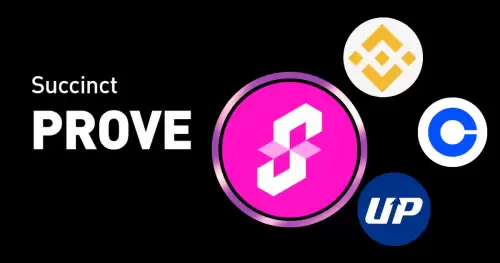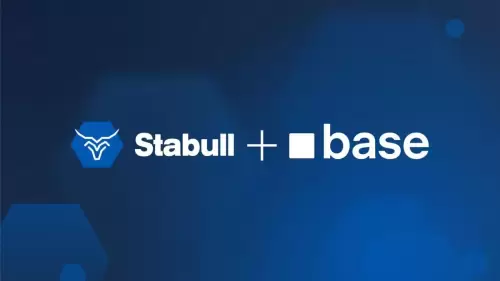 |
|
 |
|
 |
|
 |
|
 |
|
 |
|
 |
|
 |
|
 |
|
 |
|
 |
|
 |
|
 |
|
 |
|
 |
|
加密货币新闻
Solana Foundation Fixes a “zero-day” Bug That Gave Attackers Unlimited Token Minting Capabilities
2025/05/06 03:30

Solana Foundation has confirmed fixing a “zero-day” bug that gave attackers unlimited token minting capabilities and the ability to withdraw tokens from user accounts. The issue, discovered on April 16, was resolved within two days after validators rapidly deployed two critical patches across the network.
According to the Foundation’s May 3 post-mortem report, the bug affected the ZK ElGamal Proof program, which is used to validate zero-knowledge proofs linked to confidential transfers in Token-2022, now called Token-22. The flaw emerged from missing alegbraic components in the Fiat-Shamir Transformation, which is used for cryptographic randomness, making it possible to craft forged proofs.
Despite the seriousness of the vulnerability, Solana Foundation said that there were no known exploits or loss of funds. The patches were implemented by a group of development teams, including Anza, Firedancer, and Jito, with support from security researchers at OtterSec, Asymmetric Research, and Neodyme.
Solana Validators Privately Coordinated to Deploy Fix
Before disclosing the vulnerability, Solana Foundation contacted validators to coordinate the fixing process privately. Through this method, validators were able to deploy the solution quickly. However, this move sparked renewed concerns about decentralization and transparency.
Solana co-founder Anatoly Yakovenko responded to the criticism on X, saying that similar coordination happens on Ethereum too. According to him, major Ethereum validators, including Binance, Coinbase, Kraken, and Lido, could quickly agree to implement urgent security patches whenever needed.
“Bro, it’s the same people to get to 70% on ethereum. All the lido validators (chorus one, p2p, etc..) binance, coinbase, and kraken. If geth needs to push a patch, I’ll be happy to coordinate for them.”
However, critics questioned how the Solana Foundation contacted all validators in the network. Moreover, users expressed concerns about censorship or rollback through off-chain coordination, referencing prior similar responses to undisclosed bugs.
Confidential Transfer Feature Had Limited Adoption
Technically, the identified vulnerability posed a threat to token forgery and theft, but its practical impact remained limited. The affected feature, known as confidential transfer, was minimally implemented throughout the network by third parties.
Despite speculations about its involvement, Paxos said that it’s not operating the confidential transfer system. A spokesperson stated that the service is currently not live on any Paxos-issued stablecoins.
Related: How Browser Wallet Permissions Were Exploited in the Latest LinkedIn Job Offer Scam
Meanwhile, Ethereum community member Ryan Berckmans argued that Solana remains vulnerable due to its reliance on a single production-ready client, Agave. In contrast, he highlighted Ethereum’s client diversity, with the leading client, Geth, holding 41% market share, fostering protocol resilience.
Solana plans to launch its new network client, Firedancer, in the upcoming months to solve this problem. According to the Foundation, coordinated emergency patches are a requirement for network security and do not indicate centralization.
免责声明:info@kdj.com
所提供的信息并非交易建议。根据本文提供的信息进行的任何投资,kdj.com不承担任何责任。加密货币具有高波动性,强烈建议您深入研究后,谨慎投资!
如您认为本网站上使用的内容侵犯了您的版权,请立即联系我们(info@kdj.com),我们将及时删除。
-

- 以太坊,交易量和SEC的积分:导航监管景观
- 2025-08-06 22:05:31
- 以太坊的交易量在SEC Staking指导中涌现,提出了乐观和监管问题。这对Defi和Crypto的未来意味着什么?
-

- 加密市场的嗡嗡声:证明是共同案例,二元列表令牌
- 2025-08-06 22:00:30
- 加密市场将新的动态视为简洁的象征性收益在Coinbase和Binance等主要交易所的列表之后。是什么推动了这一激增?
-

- 巴西,比特币,听证日期:巴西要拥抱比特币吗?
- 2025-08-06 20:00:10
- 巴西代表会议将于2025年8月20日举行公开听证会,讨论在其国家储备中增加比特币。这可以改变游戏规则吗?
-

-

- Wewake Finance:这是您一直在等待的加密ROI机会吗?
- 2025-08-06 20:00:00
- 探索Wewake Finance对Web3可访问性的创新方法及其在不断发展的加密景观中的高ROI潜力。
-

- Pancakeswap,美国股票和永久合同:Defi的新边界
- 2025-08-06 19:53:39
- Pancakeswap潜入美国的股票代币永久合同,与传统的金融架起融合。这是分散交易的未来吗?
-

-

- 加密,东盟和菲律宾:Web3的后起之秀?
- 2025-08-06 19:51:28
- 菲律宾将自己定位为东盟的Web3中心。即将举行的事件和像特朗普这样的主要参与者会加速加密货币的采用?
-






























































